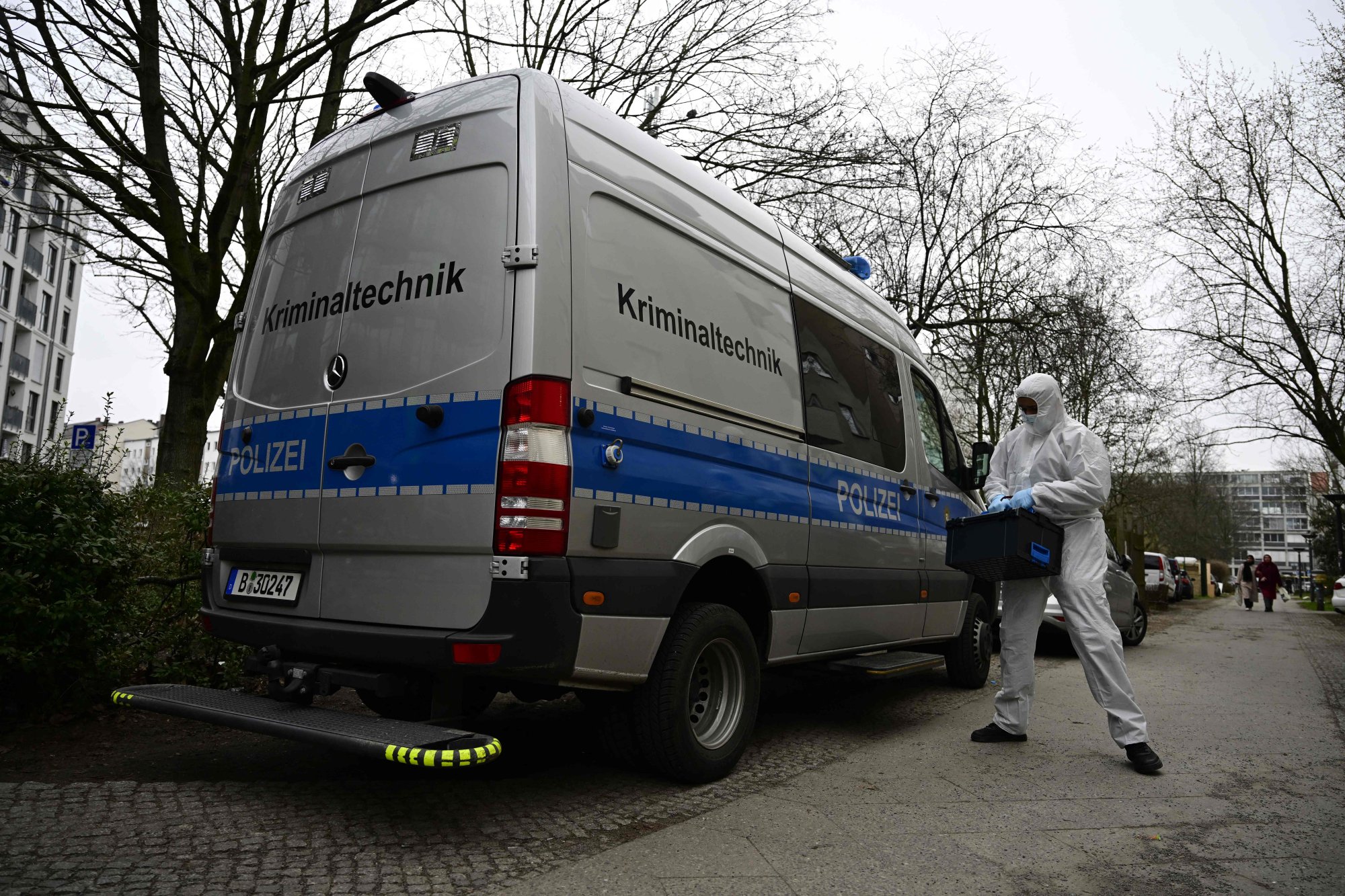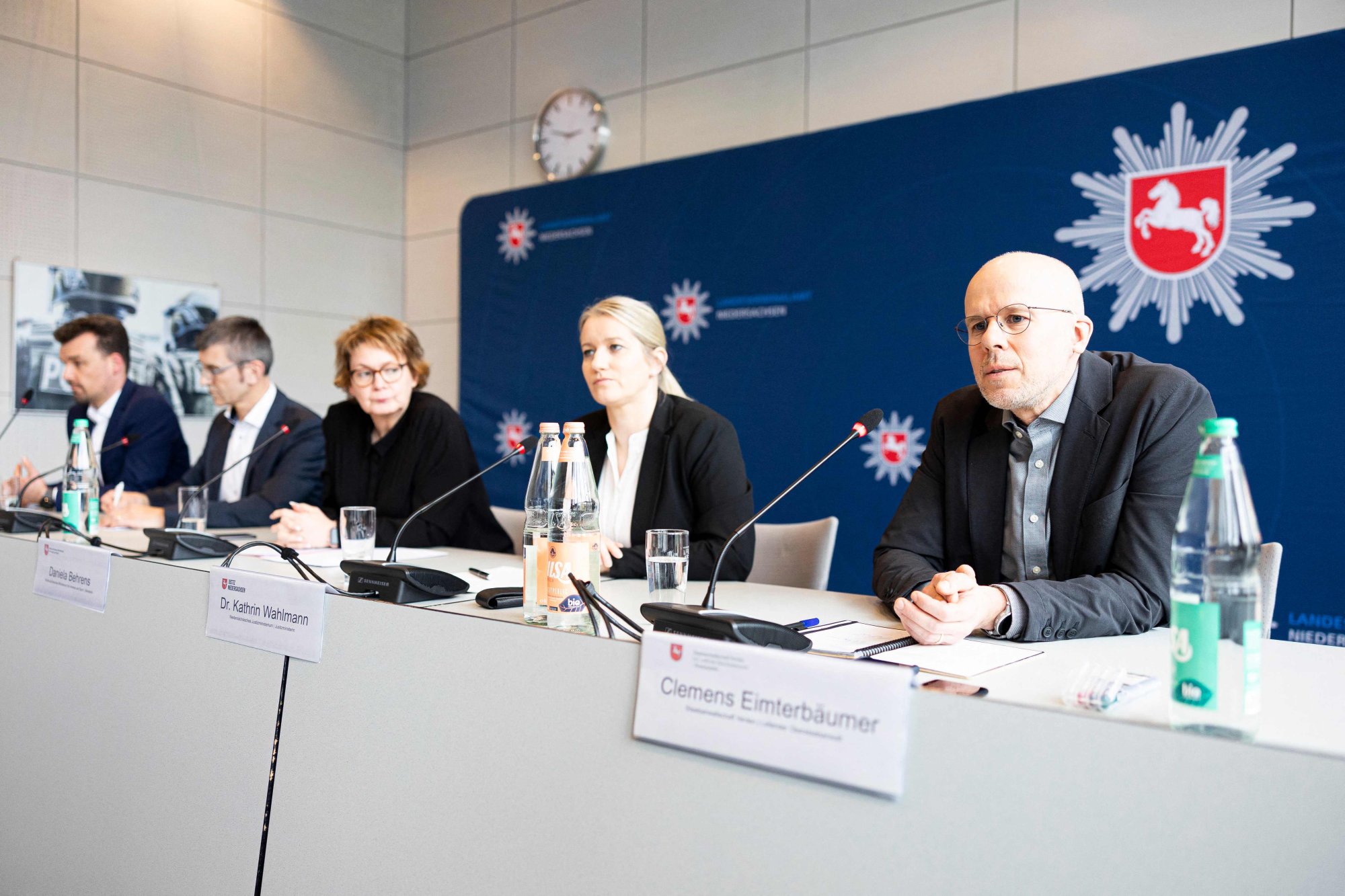Klette, the only woman tagged as “dangerous” on Europol’s most-wanted list, was arrested on Monday in the German capital on suspicion of attempted murder and various serious robberies between 1999 and 2016, a spokesman for prosecutors in Verden said.

The suspect showed no resistance as she was detained at an apartment in the city’s Kreuzberg district after being identified via fingerprints, said Hanover police chief Friedo de Vries.
Police found two pistol magazines as well as cartridges in the apartment, de Vries said.
Daniela Behrens, interior minister for the state of Lower Saxony, described the arrest as a “milestone in German criminal history”.
Klette had been in hiding in Berlin for 20 years, according to the Bild newspaper. Neighbours told the popular daily she went by the name of Claudia, had a partner about the same age as her and always said “hello” when she went out walking with her dog.
‘No good political violence’ as Germany jails far-left extremists for attacks
‘No good political violence’ as Germany jails far-left extremists for attacks
A steady flow of police officers were still coming and going from the building on Tuesday afternoon.
Shop assistant Karina Ziegler, 46, said she was “surprised” to see the crowds of officers two blocks down from her workplace this morning on what had begun as “a completely normal day”.
The anti-capitalist RAF emerged out of the radicalised fringe of the 1960s student protest movement.
Named the Baader-Meinhof gang after two of its early leaders, Andreas Baader and Ulrike Meinhof, the group took up arms against what they saw as US imperialism and a “fascist” German state that was still riddled with former Nazis.

At the height of its notoriety in 1977, the group shot dead a German bank chief and kidnapped and killed industrialist Hanns Martin Schleyer – a former SS officer.
Palestinians with ties to the gang also hijacked a Lufthansa airliner.
Though the so-called German Autumn of 1977 marked the beginning of a long period of decline for the RAF, the group continued to operate for another two decades.
Staub, Garweg and Klette, alleged members of the RAF’s so-called “third generation” active during the 1980s and 1990s, are the chief suspects in a 1993 explosives attack against a prison under construction in Germany’s Hesse state.
In the attack, five RAF members climbed the prison walls, tied up and abducted the guards in a van, then returned to set off explosions that caused about €600,000 worth of property damage, according to German prosecutors.
Taliban release 84-year-old Austrian who liked to visit ‘dangerous’ places
Taliban release 84-year-old Austrian who liked to visit ‘dangerous’ places
The so-called third generation was also behind a bomb attack on the former Deutsche Bank boss Alfred Herrhausen as well as attacks on US military facilities in Germany.
Klette is also believed to have been involved in an RAF attack on the US embassy in Bonn, the German capital at the time, in 1991.
However, Tuesday’s arrest is related to more recent crimes. Klette and her two accomplices are suspected of being behind the failed robbery of a money transporter in 2016 near the northern city of Bremen, among other offences.
In that incident, masked attackers armed with AK-47 automatic rifles and a grenade-launcher opened fire but fled without cash when security guards locked themselves inside the armoured vehicle, which was carrying about €1 million (US$1.1 million).

Prosecutor Clemens Eimterbaeumer said “further investigative work” would be carried out to establish whether there are “any connections that we can now follow up from Ms Klette to the other wanted persons”.
Investigators on Tuesday said a second arrest had been made in connection with the case. The detained suspect is male, and of the age range of the two remaining fugitives, police said, declining to give further details.
Ten days ago, an alarm was raised in Wuppertal when a man on a regional train was mistaken for Staub, 69.
However, it turned out to be a case of mistaken identity, and he and Garweg, 55, remain on the run.

